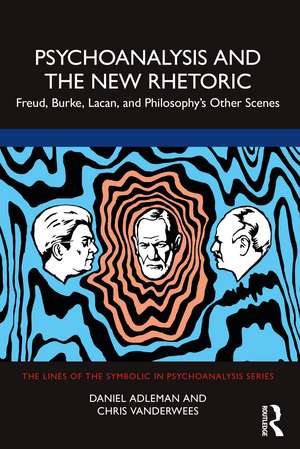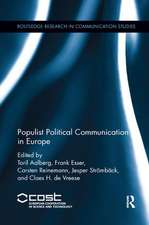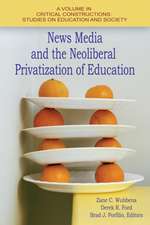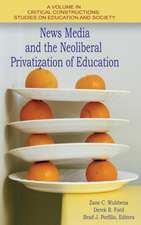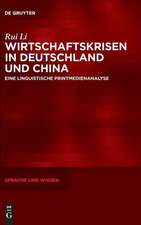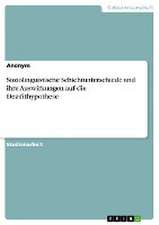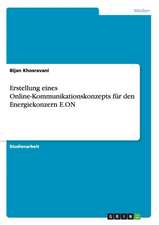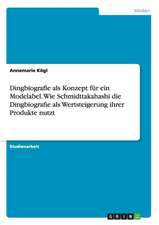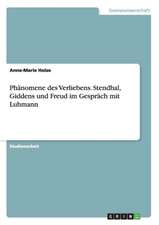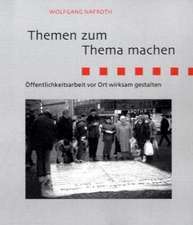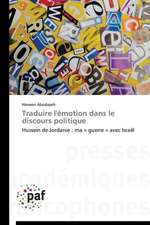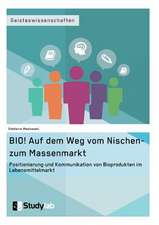Psychoanalysis and the New Rhetoric: Freud, Burke, Lacan, and Philosophy's Other Scenes: The Lines of the Symbolic in Psychoanalysis Series
Autor Daniel Adleman, Chris Vanderweesen Limba Engleză Paperback – 30 dec 2022
This thoroughly researched text takes a closer look at the "missed encounter" between rhetoric and psychoanalysis. The first section of the book explores the massive, but underappreciated, influence of Freudian psychoanalysis on Kenneth Burke’s "new rhetoric." The book’s second section undertakes sustained investigations into the rhetorical dimensions of psychoanalytic concepts such as transference, free association, and listening. Psychoanalysis and the New Rhetoric then culminates in a more comprehensive discussion of Lacanian psychoanalysis in the context of Kenneth Burke’s new rhetoric. The book therefore serves as an invaluable aperture to the fields of psychoanalysis and rhetoric, including their much overlooked disciplinary entanglement.
Psychoanalysis and the New Rhetoric will be of great interest to scholars of psychoanalytic studies, rhetoric, language studies, semiotics, media studies, and communication studies.
Din seria The Lines of the Symbolic in Psychoanalysis Series
- 5%
 Preț: 233.74 lei
Preț: 233.74 lei - 5%
 Preț: 217.73 lei
Preț: 217.73 lei -
 Preț: 288.56 lei
Preț: 288.56 lei -
 Preț: 227.99 lei
Preț: 227.99 lei - 5%
 Preț: 236.94 lei
Preț: 236.94 lei -
 Preț: 264.81 lei
Preț: 264.81 lei -
 Preț: 281.27 lei
Preț: 281.27 lei -
 Preț: 265.62 lei
Preț: 265.62 lei - 5%
 Preț: 249.35 lei
Preț: 249.35 lei - 5%
 Preț: 232.64 lei
Preț: 232.64 lei - 5%
 Preț: 232.45 lei
Preț: 232.45 lei - 5%
 Preț: 285.22 lei
Preț: 285.22 lei - 5%
 Preț: 291.68 lei
Preț: 291.68 lei - 5%
 Preț: 232.45 lei
Preț: 232.45 lei - 5%
 Preț: 165.47 lei
Preț: 165.47 lei -
 Preț: 172.12 lei
Preț: 172.12 lei - 11%
 Preț: 813.45 lei
Preț: 813.45 lei - 5%
 Preț: 307.76 lei
Preț: 307.76 lei - 5%
 Preț: 324.41 lei
Preț: 324.41 lei - 5%
 Preț: 239.06 lei
Preț: 239.06 lei - 5%
 Preț: 202.61 lei
Preț: 202.61 lei - 20%
 Preț: 823.64 lei
Preț: 823.64 lei - 5%
 Preț: 277.23 lei
Preț: 277.23 lei - 5%
 Preț: 285.26 lei
Preț: 285.26 lei - 24%
 Preț: 207.82 lei
Preț: 207.82 lei - 5%
 Preț: 260.01 lei
Preț: 260.01 lei
Preț: 218.21 lei
Preț vechi: 229.70 lei
-5% Nou
Puncte Express: 327
Preț estimativ în valută:
41.75€ • 43.59$ • 34.56£
41.75€ • 43.59$ • 34.56£
Carte disponibilă
Livrare economică 14-28 martie
Livrare express 27 februarie-05 martie pentru 22.75 lei
Preluare comenzi: 021 569.72.76
Specificații
ISBN-13: 9781032101835
ISBN-10: 1032101830
Pagini: 190
Dimensiuni: 152 x 229 x 13 mm
Greutate: 0.35 kg
Ediția:1
Editura: Taylor & Francis
Colecția Routledge
Seria The Lines of the Symbolic in Psychoanalysis Series
Locul publicării:Oxford, United Kingdom
ISBN-10: 1032101830
Pagini: 190
Dimensiuni: 152 x 229 x 13 mm
Greutate: 0.35 kg
Ediția:1
Editura: Taylor & Francis
Colecția Routledge
Seria The Lines of the Symbolic in Psychoanalysis Series
Locul publicării:Oxford, United Kingdom
Public țintă
Postgraduate, Professional, and Professional Practice & DevelopmentCuprins
Introduction: Missed Encounters. 1. The Rhetorical Unconscious: Reconciling Rival Topographies. 2. Burke’s Little Affect A. 3. Identification, Disidentification, Scapegoating, and War. 4. Beyond the Pressure Principle: Disorientation, Debunking, and Conspiracy. 5. Charcot and Freud: From Clinical Gaze to Free Association. 6. All Ears: Psychoanalysis and the Rhetoric of Listening. 7. Lacan’s Psychoanalytic Rhetoric: The Power of Non-Understanding
Notă biografică
Daniel Adleman, PhD, is an Assistant Professor of Writing and Rhetoric at the University of Toronto.
Chris Vanderwees, PhD, RP, is a psychoanalyst, registered psychotherapist, and clinical supervisor at St. John the Compassionate Mission in Toronto, Canada.
Chris Vanderwees, PhD, RP, is a psychoanalyst, registered psychotherapist, and clinical supervisor at St. John the Compassionate Mission in Toronto, Canada.
Recenzii
"Daniel Adleman and Chris Vanderwees have performed a miracle. In Psychoanalysis and the New Rhetoric they lay out the manifold connections between psychoanalytic theory and rhetorical analysis that now seem clear and self-evident, but only because they have written this pathbreaking work. Picking up some clues left by Kenneth Burke, Adleman and Vanderwees take both psychoanalytic thinking and rhetoric where neither has gone before, uncovering how their shared territory is replete with new theoretical insights. For anyone who wants to consider either psychoanalysis or rhetoric, this book is impossible to miss."
– Todd McGowan, Professor of Film Studies at the University of Vermont; author of Emancipation after Hegel and Capitalism and Desire
"In one of his last seminars, Lacan declared that the psychoanalyst is above all a "rhetor," both an orator intent upon convincing an audience and a specialist of rhetoric. Psychoanalysis and the New Rhetoric argues cogently that Lacan’s return to Freud entailed the elaboration of a "new rhetoric" identical to what Kenneth Burke was teaching at the same time. Burke, like Lacan, a close reader of Freud, is shown to provide an innovative way of understanding the language of psychoanalysis. By detailing the multiple aspects of such a rhetoric, Adleman and Vanderwees offer an original thesis that radically modifies our conception of psychoanalysis."
– Jean-Michel Rabaté, Professor of English at the University of Pennsylvania, member of the American Academy of Arts and Sciences
"Particularly for those engaging with Freudianism from Lacanian angles, it has long been appreciated that the unconscious of the ‘talking cure’ is ‘structured like a language.’ However, in Psychoanalysis and the New Rhetoric, Daniel Adleman and Chris Vanderwees, instead of relying solely on Saussurian linguistics and its offshoots, deftly utilize Burke’s rhetorical theory to renew and enrich our appreciation of the language-related dimensions of the theory, practice, and teaching of psychoanalysis. In so doing, Adleman and Vanderwees admirably demonstrate that only a multi-dimensional approach to language can do justice to psychoanalysis as an inherently interdisciplinary field."
– Adrian Johnston, Distinguished Professor of Philosophy at the University of New Mexico
"This is a brave and brilliant book by Daniel Adleman and Chris Vanderwees which reads Burke’s revival of rhetoric as similar to many principles taken from Freud such as identification and free association. Rhetoric is a function of language for Burke and Lacan, offering psychoanalytic vitality. Lacan’s Seminars are portrayed as modes of listening to speech action and take rhetoric as their model. While Burke’s speaking symbol is not Lacan’s Symbolic, Lacan’s rhetoric displays thoughts in action. Lacan performed rhetoric in his Seminars with an attitude intended for an audience’s unconscious. Like Burke, Lacan aimed to persuade. The Other for both was fragmented and disunified. Lacan, like Burke, listened for metonymy, periphrastic, gaps, and so on. The Seminars were spontaneous speech, body and voice, an act of persuasion. Rhetoric and psychoanalysis are kindred disciplines that probe the unknowable limits of connection and eloquence."
– Ellie Ragland, Professor Emerita of English at the University of Missouri; author of Jacques Lacan and the Logic of Structure
"This volume stages an eloquent encounter between psychoanalysis and the rhetorical arts of persuasion, where the psychoanalytic relation is both an ethical and socio-symbolic address that takes place in and as language. Grounded in accessible and compelling contemporary examples, psychoanalysis and rhetoric emerge here as parallel histories, the symbolic/symptomatic action of each as the unconscious of the other. Psychoanalysis and the New Rhetoric brings to light an interdependence that was always there but is seldom theorised. In addressing this oversight, it makes a substantive interdisciplinary contribution to rhetorical studies, to psychoanalysis, and to the understanding of an increasingly anxious and polarizing political scene."
– Stuart J. Murray, Professor of Rhetoric and Ethics at Carleton University; author of The Living from the Dead: Disaffirming Biopolitics
"This text is highly recommended for a broad range of readers, as it is eminently readable even for those who are unfamiliar with the methods of psychoanalysis and rhetoric. Moreover, it provides a rich historical background for those who gave up on studying psychoanalysis and rhetoric but seek to return to these disciplines, as its meticulous attention to detail allows for filling in gaps that have accumulated over time. Even for knowledgeable readers, the book enables them to deepen their understanding of the link between new rhetoric and psychoanalysis."
- Gorica Orsholits, Inscriptions 6, no. 2 (July 2023): 109-112
– Todd McGowan, Professor of Film Studies at the University of Vermont; author of Emancipation after Hegel and Capitalism and Desire
"In one of his last seminars, Lacan declared that the psychoanalyst is above all a "rhetor," both an orator intent upon convincing an audience and a specialist of rhetoric. Psychoanalysis and the New Rhetoric argues cogently that Lacan’s return to Freud entailed the elaboration of a "new rhetoric" identical to what Kenneth Burke was teaching at the same time. Burke, like Lacan, a close reader of Freud, is shown to provide an innovative way of understanding the language of psychoanalysis. By detailing the multiple aspects of such a rhetoric, Adleman and Vanderwees offer an original thesis that radically modifies our conception of psychoanalysis."
– Jean-Michel Rabaté, Professor of English at the University of Pennsylvania, member of the American Academy of Arts and Sciences
"Particularly for those engaging with Freudianism from Lacanian angles, it has long been appreciated that the unconscious of the ‘talking cure’ is ‘structured like a language.’ However, in Psychoanalysis and the New Rhetoric, Daniel Adleman and Chris Vanderwees, instead of relying solely on Saussurian linguistics and its offshoots, deftly utilize Burke’s rhetorical theory to renew and enrich our appreciation of the language-related dimensions of the theory, practice, and teaching of psychoanalysis. In so doing, Adleman and Vanderwees admirably demonstrate that only a multi-dimensional approach to language can do justice to psychoanalysis as an inherently interdisciplinary field."
– Adrian Johnston, Distinguished Professor of Philosophy at the University of New Mexico
"This is a brave and brilliant book by Daniel Adleman and Chris Vanderwees which reads Burke’s revival of rhetoric as similar to many principles taken from Freud such as identification and free association. Rhetoric is a function of language for Burke and Lacan, offering psychoanalytic vitality. Lacan’s Seminars are portrayed as modes of listening to speech action and take rhetoric as their model. While Burke’s speaking symbol is not Lacan’s Symbolic, Lacan’s rhetoric displays thoughts in action. Lacan performed rhetoric in his Seminars with an attitude intended for an audience’s unconscious. Like Burke, Lacan aimed to persuade. The Other for both was fragmented and disunified. Lacan, like Burke, listened for metonymy, periphrastic, gaps, and so on. The Seminars were spontaneous speech, body and voice, an act of persuasion. Rhetoric and psychoanalysis are kindred disciplines that probe the unknowable limits of connection and eloquence."
– Ellie Ragland, Professor Emerita of English at the University of Missouri; author of Jacques Lacan and the Logic of Structure
"This volume stages an eloquent encounter between psychoanalysis and the rhetorical arts of persuasion, where the psychoanalytic relation is both an ethical and socio-symbolic address that takes place in and as language. Grounded in accessible and compelling contemporary examples, psychoanalysis and rhetoric emerge here as parallel histories, the symbolic/symptomatic action of each as the unconscious of the other. Psychoanalysis and the New Rhetoric brings to light an interdependence that was always there but is seldom theorised. In addressing this oversight, it makes a substantive interdisciplinary contribution to rhetorical studies, to psychoanalysis, and to the understanding of an increasingly anxious and polarizing political scene."
– Stuart J. Murray, Professor of Rhetoric and Ethics at Carleton University; author of The Living from the Dead: Disaffirming Biopolitics
"This text is highly recommended for a broad range of readers, as it is eminently readable even for those who are unfamiliar with the methods of psychoanalysis and rhetoric. Moreover, it provides a rich historical background for those who gave up on studying psychoanalysis and rhetoric but seek to return to these disciplines, as its meticulous attention to detail allows for filling in gaps that have accumulated over time. Even for knowledgeable readers, the book enables them to deepen their understanding of the link between new rhetoric and psychoanalysis."
- Gorica Orsholits, Inscriptions 6, no. 2 (July 2023): 109-112
Descriere
This is an innovative work that posits the fields of psychoanalysis and rhetoric into reciprocal dialogue. It explores the rhetoric of psychoanalysis and the psychoanalytic aspects of rhetoric, and discusses what could be termed as the "missed encounter".
